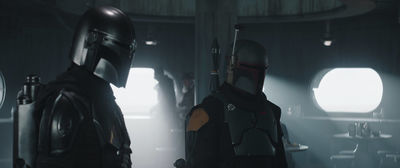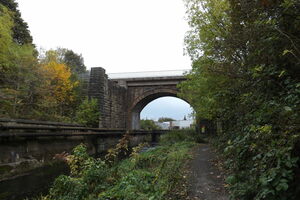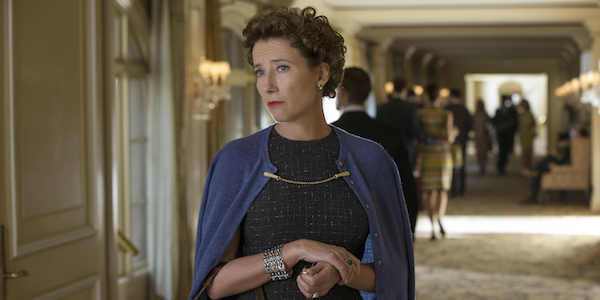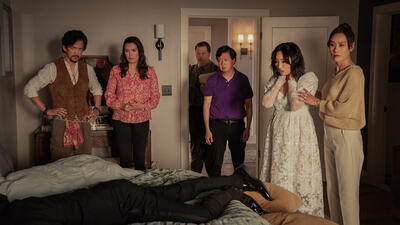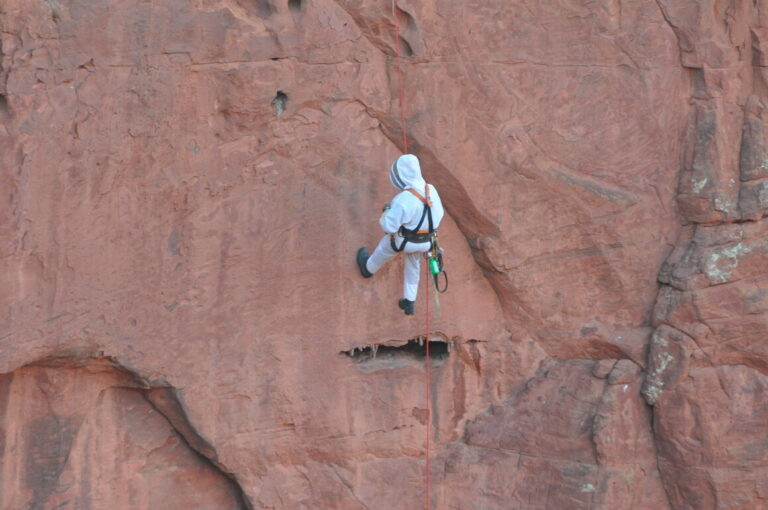FrightFest Film Festival 2020: Interview with Francesco Giannini, Director of THE HALL
The word incredible comes to mind when thinking about Francesco Giannini’s The Hall. The relevancy of the film and the parallels it contains will hit hard. It is important to note that the version of the film I had the opportunity of seeing was not yet complete, the current pandemic delaying post-production. Though this did nothing to take away from the film’s impact or relevancy, delivering an already solid induction to the horror genre.
I had the opportunity to speak with Giannini about the unexpected mirroring of his film to the global pandemic, the importance of character development, and the influences that inspired.
Hello. Stephanie Archer with Film Inquiry. Thank you so much for speaking with me today and for the opportunity to see your film! First and foremost, I have to ask: are you a time traveler because the similarities are just absolutely incredible from the situation itself to dialogue – I mean, incredible.
Francesco Giannini: [laughs] No, I’m not a time traveler. You know, I think art definitely reflects life and life reflects art. Right? So anything, any film that we watch that the filmmaker develops, science fiction and futuristic projects, they’re all ideas, concepts, and stories that have subconsciously lived in their mind. You know, you always question certain things as a filmmaker, ideas that you want to develop based on things that cross your path through your life. Right? So I think a film like The Hall largely comes from ideas that were developed through questioning government in general, you know, not just a pandemic or the amount a virus spreads, but just the government control and how the media is used in a way that manipulates population and these are things that have always interested me so much.
You know, one of my favorite films of all time is a film called Network from 1976. I’m not sure if you know about it, but it was really ahead of its time. And it was just about the whole broadcast, broadcasters and all these huge, huge companies and how they control the people and the media, how they make billions of dollars and the people behind these companies. So at the end of the day, it’s definitely ideas in my life and experiences. Like 10 years ago, for example, when H1N1 was out and people were talking about getting the vaccines, I was working for a company that obliged us to get the vaccine and I was against it because I wasn’t very keen on taking vaccines. I questioned the whole idea of vaccines – are pharmaceutical companies trying to make millions of dollars and if it would actually protect us. 2001, 9/11 – you look back and there are always conspiracies and thoughts. Now I am not saying I am a conspiracy theorist, but I am open-minded to hearing both sides.
And I don’t just follow the masses and follow the norm. It just wasn’t whatever’s said to me on TV. I always questioned history and society on that main base. I’m also a sociology major. I think that when I was in university, sociology was the subject matter that really opened up my eyes to just how the world works, the institution and the structures of society, and then how that basically runs our world. I think sociology was a big part of my career and it just opened my mind to see a pure picture of everything.
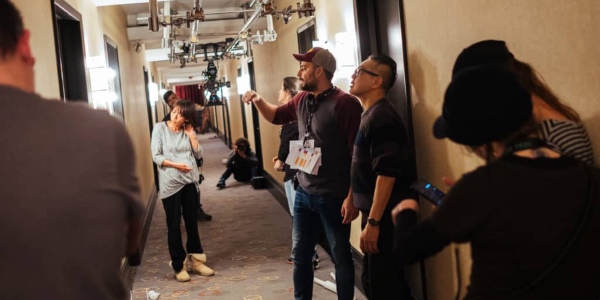
So when you talk about time travel, I think that happens sometimes when you are watching a film and you say, “Oh my God, this is so relevant. This person was talking about this before it actually happened” or a film like Contagion, it’s a different type of film, but in terms of the whole spread, it’s more about an actual spread then going into the thoughts behind it. People are always thinking about ideas and concepts, it’s just a matter of timing. And it just so happened that this was such a huge coincidence, and it’s so ironic. And then it’s mind-blowing the timing, and I’d never in a million years expected this to happen 12 months after we shot the film. And it’s really surreal.
Your mind kind of gets blown with each moment it’s so relevant. Because it’s just, there are so many regular day situations happening there. And many of them very unfortunate. And then you place this pandemic, which is the same setting that many people are feeling and are going through. You mentioned you were able to finish the film before the pandemic hit. What was it like in post-production after the pandemic hit, as you were going through the film and editing and compiling it all together?
Francesco Giannini: So first of all, just so you know, it’s important that, because I’m not sure what cut you saw on the film, but just so you know that the film is actually not finished. There’s not much left to do, but what you saw was an unfinished film in terms of the sound design, sound mix, and a little bit of the score. So there’s a lot of elements that are still not complete. We just wanted to make it on time to finish it. And that’s unfortunate because of COVID. There were a lot of delays with our post-production facilities and everything. So we got delayed enough and we didn’t make our deadline, but we had something presentable enough to get an idea. But again, it’s going to be that much better when you see the final cut, I think it’s going to be on another level with the sound design when it’s at its best. But yes, when the pandemic hit in March, or when we announced it, it had been around for over a year already, it’s just that people didn’t pinpoint it – it was already started in China and certain places. So nobody was talking about it as much.
But when it was announced, honestly speaking, we were in post-production and it took a little while for it to click. I didn’t even realize it. I didn’t even realize that at that moment, that our film was becoming a reality and it took a few weeks to click, to connect the dots like, “Oh my God”, it wasn’t even right away. Like, “Oh my God, this is happening”. It took a week or something to really digest and say, “Hey guys, you realize that our film is actually happening right now?” And then everybody started jumping on, like, “Holy shit, this is actually relevant”. It’s incredible. Honestly, it was amazing how like the shock we were in while we were in the post. Like we were editing the film, a pandemic film, during a pandemic happening. So it’s something that you have a better chance of winning the lottery, put it that way. [laughs]
[laughs] I couldn’t put it better.
Yeah, exactly. So we were really amazed by that situation. It was a surreal experience the last 6 months while we were in post-production and while this has all been happening, and it’s unfortunate the situation of COVID, but at the same time, it’s been a blessing for us as well, because of the marketing and the attention. And it’s fun. It’s fun as a filmmaker to be, like you said, ahead of the time and be a visionary in that way, where you created something that’s relevant, that’s happening, that’s occurring. For a filmmaker and a creative, it’s very rewarding because you’re creating something, you’re visioning something that’s out there. It’s not just science fiction anymore. It’s actually a reality.
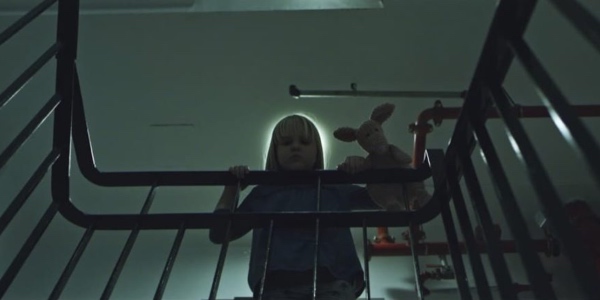
So, yeah. When we were making this film, of course, it was a science fiction slash horror slash suspense thriller kind of film. It wasn’t meant to say that, “Oh my God, this is exactly how I feel in terms of government control or government creating this virus”. And these are just ideas that people can think about it. I’m leaving the audience to think their own assumptions and judgments, I’m not trying to tell people this is how it is. It’s just more of an idea of the concept of what it could be. So yeah, it’s definitely a surreal experience in a pandemic situation.
I have to say the cut I saw, I think the latest version of the film, you wouldn’t even notice that there’s still work going on. It’s so captivating and it keeps you in. And for me watching it, with the dialogue at the very beginning, “it’s just a flu”, that was a moment that really hit how similar this film was going to be to current times.
Francesco Giannini: There are different ideas happening at the same time in the film, the whole storyline, the whole concept of pandemic virus spread and our main building was spreading the virus as one of the main storylines, but then we have the storyline of domestic abuse, you know relationship abuse. That’s again, another secondary concept idea that we’re exploring within the film. And we are talking about a pandemic virus, we’re talking about a gala and raising money for viruses, and this can be any type of virus or flu shots or whatever you want to call it. So it’s like just the concept of flu and viruses and throughout the whole in a different fashion. It could be just people that are naive to the situation, like the gala, people just going there raising funds and not knowing what’s going on, that it’s about to start.
It could be seen like the beginning of a virus spread, which it is in a way that the hotel is the first place that this starts, this is where it started. This is where it begins. There’s so much room to make your own idea of how you see the virus and how people see the virus. So I kept it open, very open-minded for people to just have their own opinion on it. I might subject my point of view to this and how I see it. But like you said, it’s so relevant to everything that’s happening. And even prior to the pandemic, people were still talking about viruses and it’s been around for years. From H1N1 to swine flu to the Spanish flu, it doesn’t end. Right? So this is just more obvious, it’s just the way the social media, the television, and everything is so in your face. It’s interesting to see all those elements come to life. It’s definitely like a COVID film.
You had mentioned the violence. There are different layers and different kinds of violence worked within the narrative of The Hall. And the silence could be seen as its own spreading virus. You have domestic violence, a form of terrorism, natural violence. What was the thought process behind layering these ideas of violence into the narrative?
So that’s exactly it. So I’m a big fan of character development for films I watch and films I create and develop. So to me, it was completely necessary that once the whole outline of the film, the cost of the virus was set in stone, that we were going with that concept, I really wanted to develop our characters and have a journey for them and not just be people in a scary situation trying to survive. I wanted to have a backdrop into the background for them. So we started developing the women lead and we started thinking about what could be their story. And that’s when the whole idea of abuse and domestic violence came in. Because like you said, an abusive relationship, whether it be physical or verbal, it could be the metaphor to the virus itself, as it spreads, it can take over your life, it could take over your wellbeing and the whole symbolic element and metaphor of the relationships. The more you stay in an abusive relationship, it just eats up at you, and not only does it eat up at you but also eats up your children.
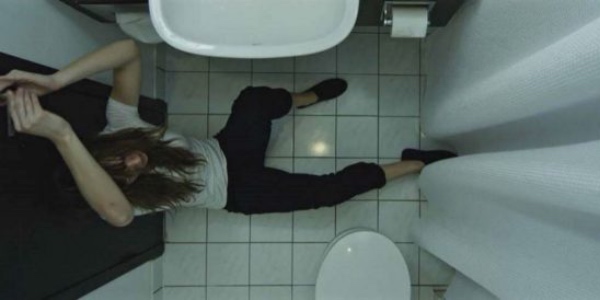
And as we know, our upbringing and kids, our parents, have a huge influence on our upbringing and who we become as people. So these kids are suffering the consequences of their parents’ actions or their parents’ situation. So it’s all relevant to what the flu is doing to the world, but also to the individual and how we can confuse those two things together, the abuse relationship slash the virus spread itself. So it was really well done. We did our best to put it together as best we can and tell as much as we can. We couldn’t stay too much on the character and all of that. And we had to focus on the overall film of the virus, we had to have enough of both to care for the characters, understand their journey, and have them connect, a Japanese woman from Japan slash a woman from the States or Canada, wherever it is, and connect together, like not know each other, complete strangers, but connect on a certain level, even if they don’t talk about the abusive side, but they just feel it while they’re communicating. At that one moment, in the elevator and in the hallway, I wanted to just have enough to get the people to care for them.
So when they go on their journey, people are rooting for them to try and make it out of there or survive. It was definitely challenging, but again, it worked out well. The cast was solid and they performed well. They really were warriors to be able to be in that situation. And it was exhausting at times and it might’ve been heavy for them as well at times, you know, the long days and just performing on the floor and that crawling, that needs take after take. I really wanted the actress to feel the experience of what it would be like to be in a situation like that. And that’s how we shot it, in consecutive order of the actual scenes. So we did that purposely, even up to the last scene.
So that was the idea. It was to create an experience. To me, Hall was, from the beginning, meant to be an experience for the audience, almost like a rollercoaster ride the best I could get them involved and follow them through and care for them. And of course, connect the dots to the virus itself and what they are going through on a personal level. So yeah, I think we did our best and I think it’s successful in its own way. And I’m really proud of that.
I do have a question about the young girl Kelly, who’s played by Bailey Thain. I couldn’t help notice. She looks a lot like Carol from The Poltergeist.
Francesco Giannini: [laughs] yes, of course. Yeah, I’m getting that a lot.
Did you know what you wanted your cast to look like from the beginning? Or did that just come about naturally?
Francesco Giannini: That came along naturally. So all the cast that you see within the film was never thought out beforehand. We had ideas of the type of characters we wanted, their personality, their strengths, their weaknesses. We wanted people, actors, that could perform under the circumstances and the pressures. I didn’t have a physical vision of what they were going to look like. It was more we adapted as we went along, the auditions that we started seeing the people that were auditioning for the film and slowly but surely we were looking at the strong performances and then it just so happened that this was the cast that stood out the most for me. And I thought that would have been a great thing.
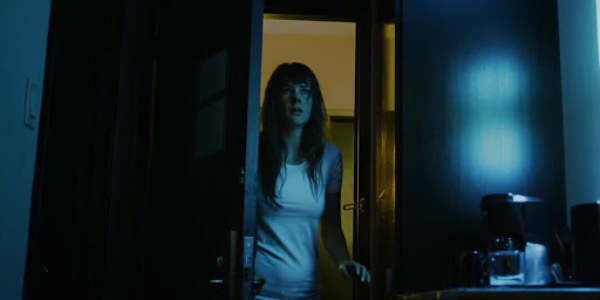
My intention was never for her to look like the Poltergeist girl, but then when we saw on set, it became a reality that she does. So it was never the intention, but at that point, you know what if they catch on to that, that’s great. And that’s what happened, you know. And of course, this film to me is inspired by a lot of 80s films. Maybe some people might spot some of the aesthetic choices I made in terms of the look and the visuals because there’s been a lot of 80s inspiration in those films for me, you know? I could name you a few if you like, but there’s definitely a lot of legendary filmmakers that inspired me as a filmmaker and I used those elements subconsciously or purposely within the film somewhere.
It’s funny, you say you’d mentioned a few because I also noticed that there’s a very zombie feeling to those who are inflicted. So I actually was wondering what films may have been an inspiration or that you may have drawn on while you were creating this film.
Francesco Giannini: So when we talk about storyline, I separate storyline and technical choices, camera angles. As a director, you have your vision and mentally are you inspired by other filmmakers growing up and modern-day filmmakers versus classic filmmakers, but there’s a mix of things in there. So talking about making references to the 80s, it’s a lot of technical shots when we talked about the diopter shots, which is a double focus, and then you have some vertical shots where the camera moves in and the lens zooms out and you create that effect. These are all inspirations I’ve learned through my years of watching films and film theory, people like [Alfred] Hitchcock and Stanley Kubrick and Orson Welles, some Citizen Kane and The Shining is in there as well.
[David] Cronenberg was a filmmaker that was an inspiration to me growing up. The Fly and Rabid, these are films from Canada in the 80s and 70s that definitely inspired me. The Fly was one of the first horror films I ever watched. So, we tried to keep it as classic as possible. So 80% of the film, the effects you see are practical, it’s not VFX. And that was purposely done because I love films from the eighties that used that aesthetic where films like The Thing and Child’s Play, these are all films that were part of my upbringing, the horror genre was always one of my first introductions to movies.
And when we talk about a modern-day touch, when we look at the one location shot, making a movie one location, you look at films like Phone Booth and the Saw franchise – you know I think Hall has a lot of inspiration from Saw. I think that’s the way we wanted to develop it in many ways because I think Hall has the potential of having a franchise and having a sequel to it. That was kinda the idea from the beginning.
So we’re looking already at Hall 2 and stuff. So there are young and modern-day filmmakers in there as well that inspired the film itself. So yeah, there’s a mix in there in terms of aesthetics and storylines and just the structure of the film. It’s hard to pinpoint what, but there’s a lot of inspiration from different filmmakers in different films that I’ve seen over the years. I thought the one location would be a challenge, but that’s what I wanted. I loved the idea of having the whole film take place in one location. And I hadn’t seen a film in a hallway in a while, or I don’t recall seeing a film that takes place in the hotel hallway for a majority of the film. I figured it would have been a great challenge and something that was original in its own way.
You had mentioned that you guys are thinking about Hall 2. With lockdown, basically keeping everyone in place, have you had the chance to begin any new projects or continue any existing?
Yeah, so I’ve been developing Hall 2. I won’t say too much, but we’re trying to build a franchise film around our main character Julian, the villain. We could go more into his story and we don’t kind of go into it fully and that was purposely done. So we leave that open. So we kind of go into his story and maybe potentially a new location, potentially an airport or a hospital. So we are developing Hall 2. I signed on to another film as director, a film that I had the option to script last year – a film that takes place in 80% of a limousine. Another suspense, thriller, horror and it’s definitely a really great script, really fun project. I’m hoping to begin shooting that in the new year if everything goes well.
And another film I’m working on is an Italian project called Golden City, which is Chittà d’ Oro in Italian. And that’s a very, very personal film to me because it’s dedicated to my Italian heritage and my Italian background. So dedicated to my father and my grandfather, and we’re going to be shooting that in my grandfather, dad’s hometown of Italy. I’m going to be leaving the genre for a bit and going to, you know, fantastical realism, drama at which I’m really excited about. The script is looking great. I’m really excited about that. And I’ve been developing in the last six months as well. And then of course I have some other scripts that have been in development for years that I’m really excited about. And I’m not really sharing the details yet because they’re still in development, but some powerful scripts that I’m looking forward to getting to and bigger budgets as well. So yeah. So we’ll see what happens with the COVID situation, but I’m hoping to be on set in the next year or so, and keep pushing these projects forward.
That’s amazing. I can’t wait to see the final cut of The Hall. I loved it just from what I’ve seen so far and I do look forward to your upcoming projects. Again, thank you so much for speaking with me.
Francesco Giannini: No problem. My pleasure. Thank you for interviewing me.
Film Inquiry would like to thank Francesco Giannini for taking the time to speak with us!
Does content like this matter to you?
Become a Member and support film journalism. Unlock access to all of Film Inquiry`s great articles. Join a community of like-minded readers who are passionate about cinema – get access to our private members Network, give back to independent filmmakers, and more.
Join now!
